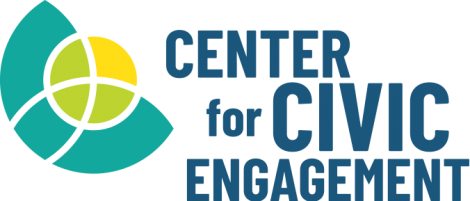
Over the past 14 years, Pensacola
has undergone a major revitalization.
When we started, our city was feeling the aftermath of several decades of economic decline. There was a huge talent drain as young people left for better opportunities. Downtown was dotted with many vacant buildings.
Today, much has changed. Downtown Pensacola is thriving and new businesses are popping up everywhere. There is more downtown construction taking place than at any time in modern history. Many new stores, restaurants, and other businesses have opened up downtown. We’ve won several prestigious awards and accolades. And property values are soaring: In the past four years, they’ve seen an incredible 25.9 percent growth.
At the heart of much of our success so far has been citizen-led and citizen-powered change. Our community members have stepped forward and taken charge of the well-being of our city. The CivicCon lecture series has been extremely well attended, with more than 300 citizens at each event and averaging more than 5,000 live video views for each session. Our citizens want to learn more and make Pensacola an even stronger city in which to live, invest, grow, and prosper.
Yet, while we’ve made some progress, there is still much work left to do. That’s why we have established the Pensacola Center for Civic Engagement. We are moving toward a goal of inclusive prosperity. We want everyone to be lifted by the economic “rising tide” we’re experiencing. In addition, we want to be sure that we not only sustain our level of progress, but that we also maximize our opportunities.
That means we need to make progress in several areas:

Education.
All residents need to have access to the best possible learning opportunities. This means we must continue investing in early childhood brain development and kindergarten readiness. Children who are not ready for kindergarten are less likely to graduate from high school. We must also continue investing in strong public school systems, including workforce development and leadership skills development.

Neighborhood associations.
Active neighborhood associations are essential to create a better community. Our neighborhood associations vary from very effective to non-existent. We need a way to make existing neighborhood associations strong and grow neighborhood groups where they are needed but don’t yet exist.

How to advocate.
The enthusiastic response to CivicCon shows that people want to be engaged. They also want to be knowledgeable of where things are going well and to be able to change things that need to be improved. The next step is having a system in place to help people learn the most effective ways to advocate.

Choosing smart, ethical elected officials who have the public’s interest at heart.
We need to encourage good people to run for elected office. We also need to elect (and re-elect) people who can be effective in their position and be held accountable for accomplishments and the goals that they promised. We also need officials who possess the key characteristics outlined in CivicCon presentations: ethics, transparency, strategic planning, and the ability to surround themselves with very smart people.

Answering the tough questions.
For example:
- Why are neighborhood groups sometimes the last to know when government makes changes or funds projects that impact them directly?
- What is the process of establishing a city or county budget, and how does that budget process support or exclude the public?
- When is the best time to advocate for an upgrade to a neighborhood park or a traffic plan at a dangerous neighborhood intersection?
(These are just a few of the questions the Center for Civic Engagement will explore and answer.)
The good news is we have some of the most engaged citizens in the country. We want to galvanize our most highly engaged group of local citizens and help them take their engagement to the next level—powerful community action. But we won’t stop there. We want everyone on board. We want to activate and engage the entire community by working with neighborhood groups on how best to deal with local issues that affect them. We want to help people turn ideas into realities.




